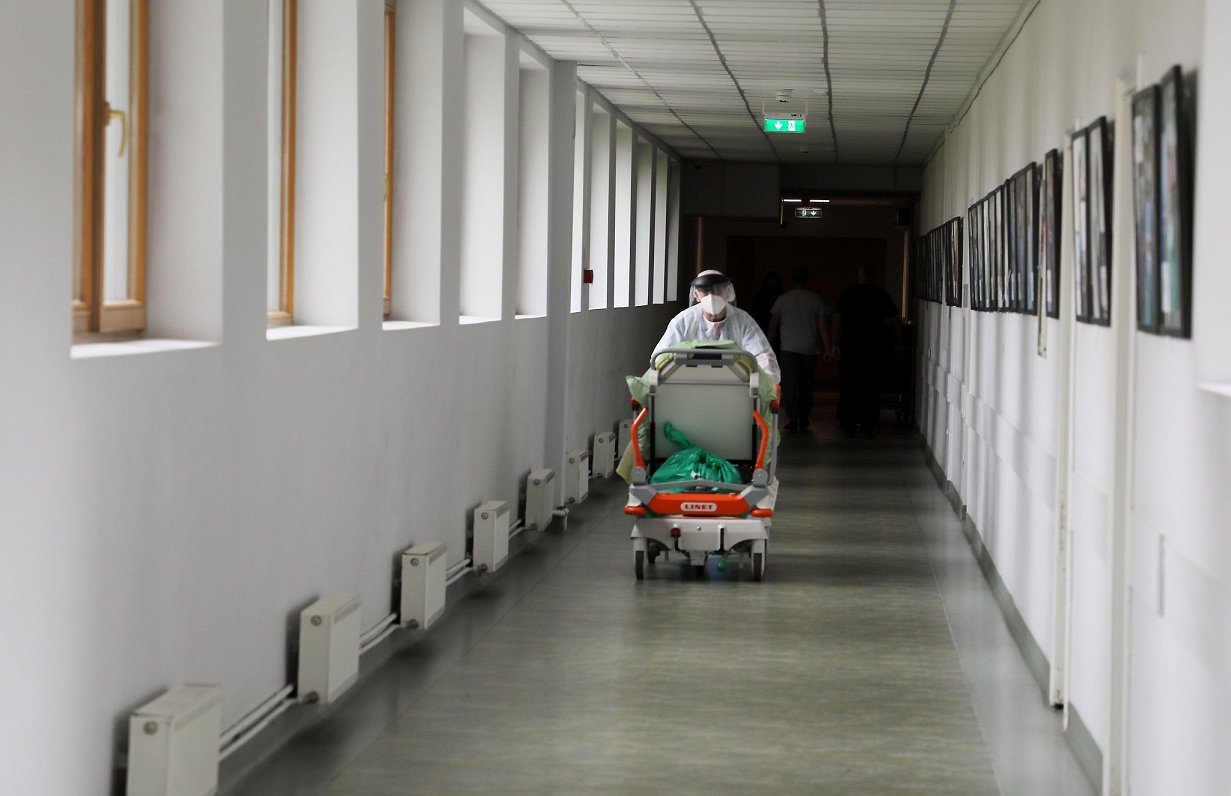SPKC, evaluating this season’s acute upper respiratory tract infection and influenza monitoring data, found a significant increase in the prevalence of respiratory syncytial virus. Virology data from the National Microbiology Reference Laboratory (NMRL) of Eastern Clinical University Hospital in Riga shows that from week 40 to date, 14% of the total number of samples (450) or 63 cases have been confirmed to have respiratory virus syncytial, but in the last two weeks the percentage of this virus has reached 22.4%.
SPKC specialists warn that respiratory syncytial virus can be dangerous for newborns aged 2 to 3 weeks, as this infection can be fatal in infants. This infection is especially dangerous in premature infants, who have low or no maternally acquired antibodies, and in children younger than 2 years of age with chronic lung disease, congenital heart disease, or children with weakened immune systems and neuromuscular disorders, including those who have difficulty to swallow or clear mucus secretions.
In general, respiratory syncytial virus causes mild cold symptoms in the general population, but it can also cause serious illnesses such as bronchiolitis, pneumonia. One or two in 100 infants younger than 6 months who become infected with respiratory syncytial virus may require hospitalization. Those who are hospitalized may need oxygen, intravenous fluids if they are not eating or drinking, and/or artificial ventilation. However, the virus can also cause serious illness in at-risk adults.
The source of the infection is only man, SPKC said. The infection is spread by airborne droplets. Circulation of the virus is observed throughout the year, but most often from October to April.
The infection is characterized by high infectivity and the ability to spread rapidly in the community. The incubation period is from 2 to 6 days. In the first days, a dry cough appears, which can progress to wheezing or difficulty breathing, there may be a runny nose, loss of appetite.
SPKC specialists advised that in young children respiratory syncytial virus mainly affects the deep respiratory tract, but in older children and adults only the upper respiratory tract is most often affected. There are no specific treatments for respiratory syncytial virus.
If the family has a baby or is in contact with an infant or young child, especially if the baby was born prematurely or a baby with chronic heart or lung disease or a weakened immune system, special care must be taken to ensure that the both healthy child and family members should strictly follow the general preventive precautions mentioned above, noted SPKC.
SPKC recalled preventive measures that can protect against respiratory syncytial virus and other infections:
- wash or disinfect your hands often and thoroughly, teach your child to do the same;
- avoid touching your eyes, mouth, nose with unwashed hands;
- avoid close contact with sick people;
- cough and sneeze by covering your mouth and nose with a disposable handkerchief or bending your elbow;
- clean and disinfect surfaces and objects that people touch often, such as toys, doorknobs, telephones, etc.;
- often ventilate the premises;
- avoid visiting public places where a large number of people gather, crowding occurs, especially if you go with small children;
- if it is not possible to maintain distance indoors, the use of a medical mask or respirator is recommended;
- if you observe symptoms of illness, stay at home, do not go to work, educational institutions or other public places. Do not allow sick children to attend an educational institution or public event. This will help protect others from getting sick.
The SPKC specialists urge you to contact your GP immediately if your or your child’s illness worsens significantly and rapidly, breathing is difficult or your child is not drinking enough fluids. In addition, SPKC specialists recommend limiting the time children spend in day care, educational institutions or other public places where infection is possible, especially during periods of high respiratory syncytial virus activity. This can help prevent infection and the spread of the virus during its season.
Since October 2022, respiratory syncytial virus infections or cases of bronchiolitis, often caused by this infection, have been on the rise.
Several countries reported an increase in early season RSV cases, while France, Ireland, Spain, Sweden and the United States reported an increase in hospitalizations of children.
This year, the respiratory syncytial virus season started earlier than the pre-Covid-19 pandemic seasons. The SPKC noted that this may be due to loosened epidemiological safety measures, so this early increase in cases is not unexpected, although further monitoring is needed. Such a large number of hospitalizations of children in different countries also creates a burden on the health sector, SPKC said.
Highlight the text and press Ctrl+Enterto send the editor the text fragment to be corrected!
Highlight the text and press on Report a bug buttons to send the text fragment to be corrected to the editor!


